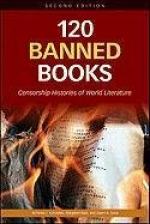|
This section contains 2,198 words (approx. 8 pages at 300 words per page) |

|
IN A LETTER to Colonel Edward Carrington, Thomas Jefferson wrote, "Were it left to me to decide whether we should have a government without newspapers, or newspapers without a government, I should not hesitate a moment to prefer the latter." Like others who had grown up under the prior restraint practiced by the British government, Jefferson knew firsthand that without newspapers to report and comment on its actions, a government can—and most likely will—abuse its powers. Jefferson and other architects of the U.S. government also realized that the citizens of a democracy had to be well informed about public policy if they were to govern themselves wisely. As James Madison, the author of the First Amendment, put it: "A popular [democratic] government, without popular information [available to the public] or the means of acquiring it, is but a Prologue...
|
This section contains 2,198 words (approx. 8 pages at 300 words per page) |

|




